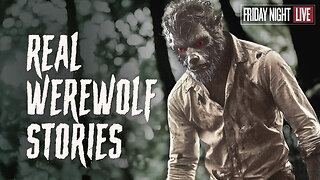Woman of the Hour
It’s been a year since I first saw “Woman of the Hour,” Anna Kendrick’s directorial debut, at its world premiere at the Toronto International Film Festival in 2023. It still haunts me. Written by Ian McDonald, the film is inspired by the true story of how serial rapist and killer Rodney Alcala appeared on “The Dating Game” in 1978. Not only does Kendrick give a typically intelligent and spunky performance as Sheryl, an aspiring actress and the contestant who matched with him on that fateful day, but as a director, she shows a keen curiosity about the power of the gaze, both cinematic and human.
“You’re beautiful,” Alcala says to all of his victims, mostly women on the margins of society. He is a photographer. He knows the power of his gaze, of his camera. Kendrick begins her film with a victim who was murdered in 1977. We hear her off-screen before we see her. The first image of her is framed within Alcala’s lens. “Try to forget there is a camera here,” he tells her. Kendrick then focuses her lens on Alcala’s face, actor Daniel Zovatto’s eyes masquerading as open pools of empathy, the tool with which he lulls women into a false sense of safety. When he shifts to predator mode, an overwhelming cruelty overtakes his eyes. Kendrick holds on his face, allowing the shift to happen before our eyes, placing us directly in the psyche of his victims.
Later in the film, Alcala and Sheryl go out for drinks. The date is not going well. Sheryl’s laughter has caused a change in the seemingly charming bachelor. In recovery mode, she says she doesn’t date much. He notes the irony of her going on a dating show. “My agent said it would get me seen,” she says. “Did you feel seen?” he asks. The camera frames both in close-ups, framing the conversation as a duel. “I felt looked at,” she admits. “How do you feel right now,” he pushes. “Fine,” she says, despite her visible discomfort. “Fine,” he mockingly replies. There’s a menacing pause. Then he continues, “You know, most people don’t like to be seen. They’re afraid. Because you have to be comfortable with yourself. You have to stop performing.”
Every woman in Kendrick’s film has a moment where she must play “nice” to get through a situation. Sheryl has to navigate this kind of performance many times throughout the film. Take, for instance, the moment when game show host Ed Burke (Tony Hale, perfectly underplaying the sleaze) enters Sheryl’s dressing room spouting a deluge of casual misogyny and racism before telling Sheryl not to scare off the bachelors with her intelligence. He tells her she should just smile and laugh, exactly as she did in another scene where two men at a casting call openly debate her physical worth in front of her. Just as she does when rebuffing the advances of neighbor/fellow aspiring actor Terry (Pete Holmes) over drinks. Just as Amy (Autumn Best, a firecracker), a teenage runaway whose escape from Alcala ultimately led to his arrest, also uses a smile and a laugh to survive her violent encounter with him.
-
 59:08
59:08
The StoneZONE with Roger Stone
9 hours agoHarris Turns a Blind Eye as Jet Fuel Leak Poisons Thousands of Military Families | The StoneZONE
63K18 -
 59:53
59:53
Havoc
11 hours agoYou Rap What You Eat: What Makes a Great Lyricist | Stuck Off the Realness Ep. 17
77K6 -
 1:04:37
1:04:37
Edge of Wonder
11 hours agoReal Werewolf Stories in History: Demons, Shapeshifters, or Dogmen?
69.5K13 -
 1:01:23
1:01:23
Sarah Westall
11 hours agoDo YOU have White Privilege? Taking on the Man w/ AJ Rice
68.3K8 -
 1:41:29
1:41:29
2 MIKES LIVE
11 hours ago2 MIKES LIVE #131 Open Mike Friday with Special Guest JEROME CORSI!
48.3K2 -
 1:11:57
1:11:57
Exploring With Nug
12 hours ago $26.93 earnedMASSIVE Compound With Armed Guards Set Up Just Outside Asheville!
60.9K77 -
 10:21
10:21
Chrissy Clark
18 hours agoTim Walz BOMBSHELL Accusations😱 I Underreported Stories
64.5K59 -
 58:50
58:50
World Nomac
14 hours agoMY FIRST TIME in Manila Philippines 🇵🇭
67.9K5 -
 1:01:05
1:01:05
In The Litter Box w/ Jewels & Catturd
1 day agoPsycho Ex-Girlfriend Kamala | In the Litter Box w/ Jewels & Catturd – Ep. 672 – 10/18/2024
100K63 -
 1:05:38
1:05:38
Twins Pod
19 hours agoDoes The Future Look Bright? | Twins Pod - Episode 35 - Matt Kim
104K14